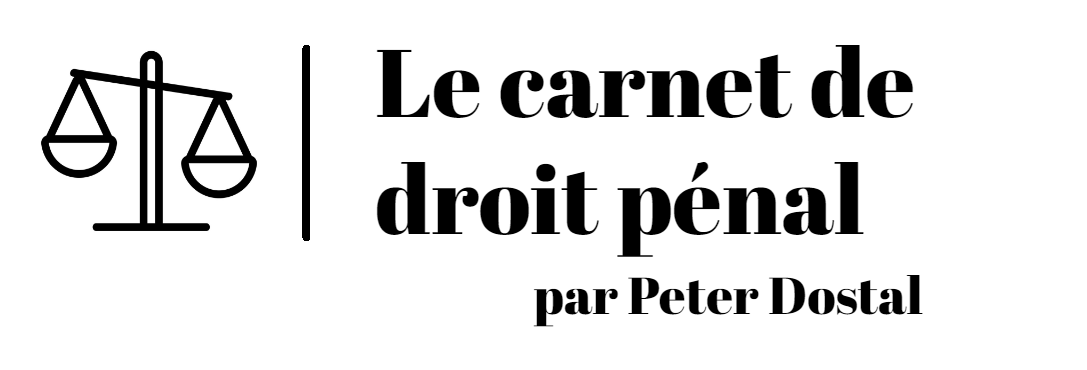« Enlèvement d’une jeune (infraction) » : différence entre les versions
m Remplacement de texte : « Sentencing Principles and Ranges » par « Principes et fourchettes de détermination des peines » |
m Remplacement de texte : « (SCC) » par « (CSC) » Balises : Modification par mobile Modification par le web mobile |
||
| Ligne 291 : | Ligne 291 : | ||
The ''actus reus'' is made out by nothing more than "preventing a parent, guardian, or other person having lawful care or charge of the child, from exercising control over that child."<ref> | The ''actus reus'' is made out by nothing more than "preventing a parent, guardian, or other person having lawful care or charge of the child, from exercising control over that child."<ref> | ||
{{CanLIIRP|Dawson|1fr4r|1996 CanLII 150 ( | {{CanLIIRP|Dawson|1fr4r|1996 CanLII 150 (CSC)|[1996] 3 RCS 783}}{{perSCC|L’Heureux‑Dubé J}} | ||
</ref> | </ref> | ||
As with any offence, the motive or reason for taking a child is not relevant except where it is considered as part of a defence.<ref> | As with any offence, the motive or reason for taking a child is not relevant except where it is considered as part of a defence.<ref> | ||
{{CanLIIRx|FWB|fvj2c|2013 SKPC 3 (CanLII)}}{{perSKPC|Plemel J}}{{atL|fvj2c|77}}<br> | {{CanLIIRx|FWB|fvj2c|2013 SKPC 3 (CanLII)}}{{perSKPC|Plemel J}}{{atL|fvj2c|77}}<br> | ||
{{CanLIIRP|Chartrand|1frqp|1994 CanLII 53 ( | {{CanLIIRP|Chartrand|1frqp|1994 CanLII 53 (CSC)|[1994] 2 RCS 864}}{{perSCC|L’Heureux‑Dubé J}}{{atL|1frqp|52}} (“Whether the accused may have had an innocent motive, or intended to interfere with possession for a very short period of time is beside the point.”)</ref> | ||
It is not necessary for the Crown to prove whether there was any coercion or persuasion of the young person.<ref> | It is not necessary for the Crown to prove whether there was any coercion or persuasion of the young person.<ref> | ||
{{CanLIIRPC|R v Vokey; R v Defouw|1lsgq|2005 BCCA 498 (CanLII)|202 CCC (3d) 236}}{{perBCCA|Rowles JA}}{{atL|1lsgq|26}}<br> | {{CanLIIRPC|R v Vokey; R v Defouw|1lsgq|2005 BCCA 498 (CanLII)|202 CCC (3d) 236}}{{perBCCA|Rowles JA}}{{atL|1lsgq|26}}<br> | ||
| Ligne 341 : | Ligne 341 : | ||
==="Lawful Authority"=== | ==="Lawful Authority"=== | ||
"Lawful authority" provides a justification for those who take children from the control of their parent or guardian for their protection. The purpose of this justification is to protect good Samaritans.<ref> | "Lawful authority" provides a justification for those who take children from the control of their parent or guardian for their protection. The purpose of this justification is to protect good Samaritans.<ref> | ||
{{CanLIIRP|Chartrand|1frqp|1994 CanLII 53 ( | {{CanLIIRP|Chartrand|1frqp|1994 CanLII 53 (CSC)|[1994] 2 RCS 864}}{{perSCC|L’Heureux‑Dubé J}}{{atL|1frqp|40}} <br> | ||
</ref> | </ref> | ||
| Ligne 420 : | Ligne 420 : | ||
Where the accused is a parent, guardian or another person with lawful possession of the child, it does not mean they can get consent from themselves. Consent must be provided by a third party who meets the definition.<ref> | Where the accused is a parent, guardian or another person with lawful possession of the child, it does not mean they can get consent from themselves. Consent must be provided by a third party who meets the definition.<ref> | ||
{{CanLIIRP|Dawson|1fr4r|1996 CanLII 150 ( | {{CanLIIRP|Dawson|1fr4r|1996 CanLII 150 (CSC)|[1996] 3 RCS 783}}{{perSCC|L’Heureux-Dubé J}} | ||
</ref> | </ref> | ||
